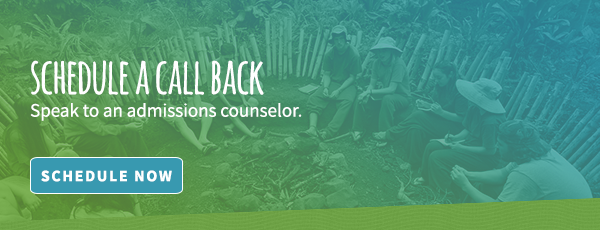Never underestimate the power of the wilderness. It tenders a commanding, yet holistic, backdrop to the therapeutic process for troubled teens and young adults. At Pacific Quest, our Wilderness Therapy Program supports students in a peaceful environment, empowering them to make both dynamic and compelling changes to their lives. With the absence of technology, substances and a host of other distractions, students are able to focus on themselves, work through self-imposed limitations, defeating thoughts and tackle challenging issues.
But they’re not alone. Based in an experiential outdoor classroom, students work together with skilled and supportive clinicians, a comprehensive wellness team, and experienced program guides, all of whom are advocating for the students’ emotional health. It’s truly an innovative approach to behavioral therapy that offers help for struggling families.
The Finest Contribution: Support
Student success relies on many factors, including garnering support from the entire family. If you’re considering a wilderness therapy program for your troubled son or daughter, here are four ways you can support them as they navigate their way through it:
- Even though parents are not attending wilderness therapy, it is important to fully understand the program and its initiatives, and to stay connected with their teen’s. To prepare for weekly phone calls, write down your questions in advance, be open to concepts and suggestions, take notes and engage in your own parallel process.
- Letter writing can be highly therapeutic and a powerful communication tool — not just for the student but also for the immediate and extended family. Not only is written communication an authentic reminder that the student is loved and missed, but it is also an outlet to articulate difficult issues with care and mindfulness. Letter writing helps us to slow down, process information, which often encourages more intentional and less emotionally charged responses for both the student and family.
- One of the most important things you can do for your teen or young adult is to take care of yourself. Parents often overlook their own mental and physical health, but in reality, it is essential to maintain your energy and health to interact with your child in a new and inspiring way that fosters long-term success. Engaging in your own therapeutic work, maintaining or reestablishing healthy habits and/or attending support groups are all great ways to support your own health and well-being.
- Continuing to support your teen or young adult after the program is just as important for success as supporting them during the program. If your child is continuing on to an aftercare setting, continue to keep the lines of communication open, ask questions, remain engaged and committed to continuing the growth process as a family. Continue to do “your own work.” If your child is returning home, research supportive resources in your community, such as support groups, for a little extra reinforcement to you. Engage in family meetings. Interact in healthy activities that the entire family can enjoy, such as planting a garden and spending time outdoors as much as possible.
If you’re interested in learning more about Pacific Quest’s Wilderness Therapy program, contact our Admissions Team.
